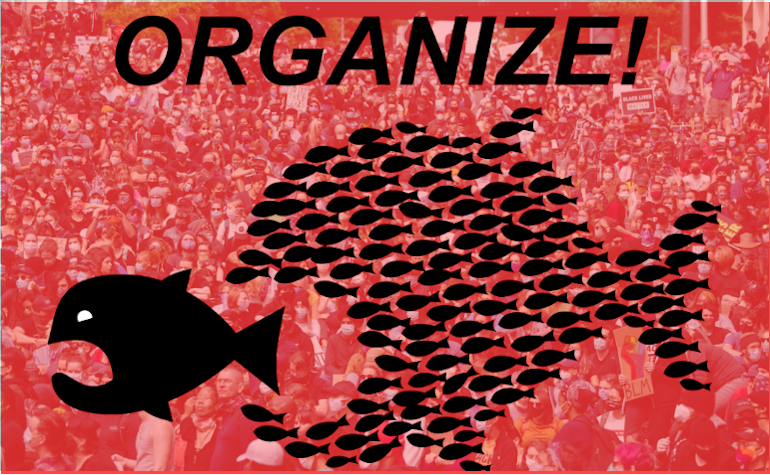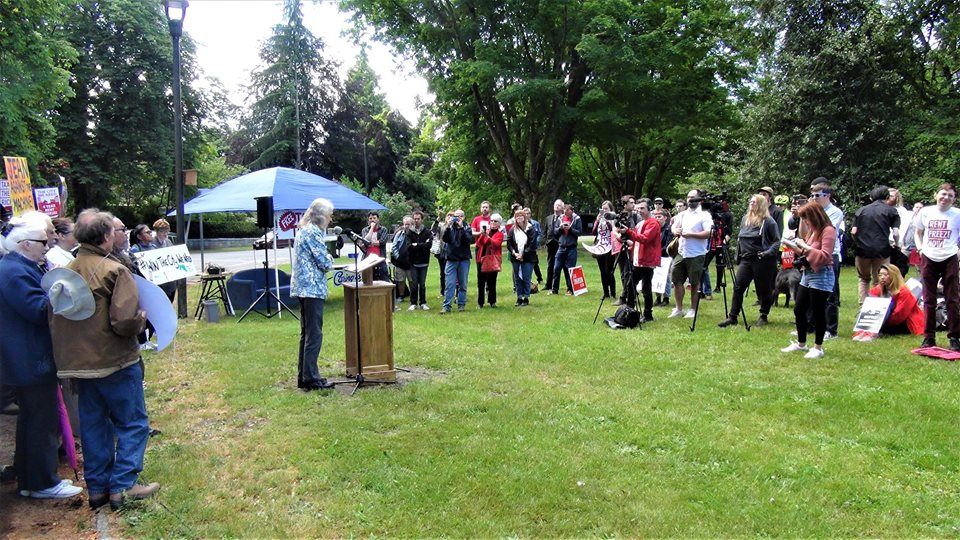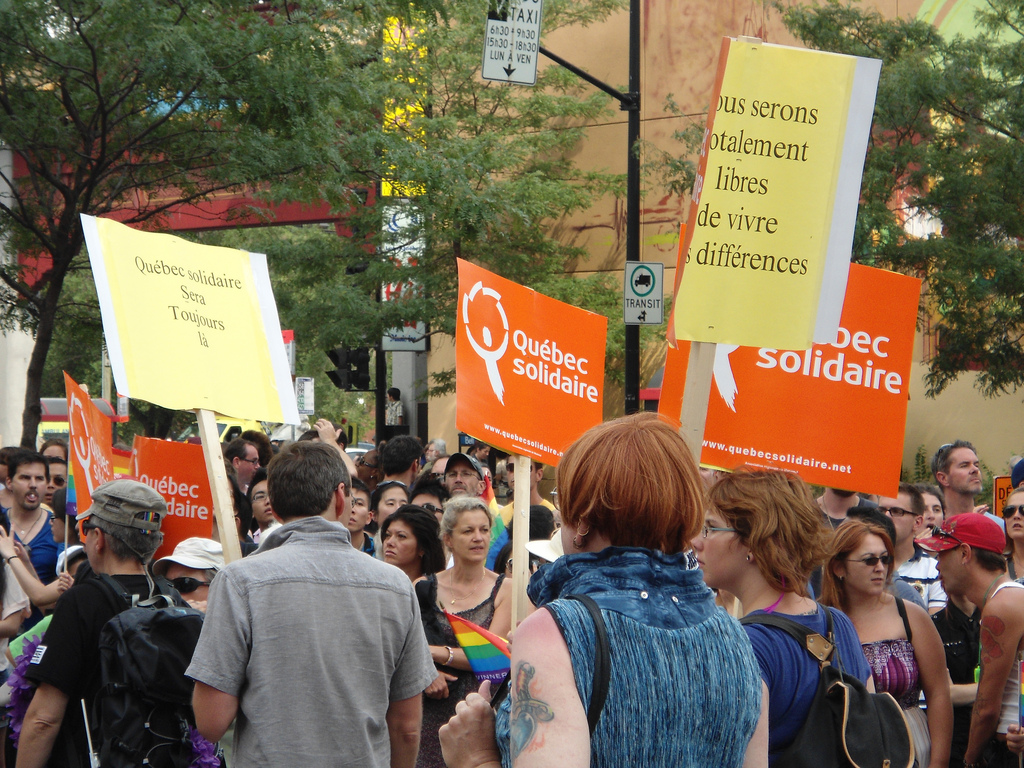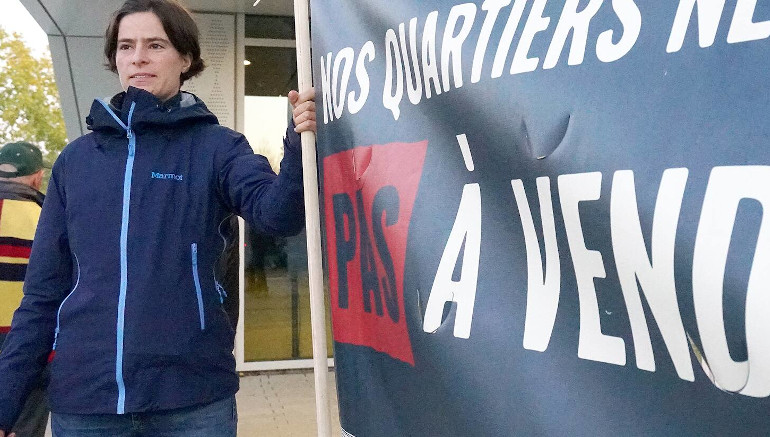The long months of COVID have been brutal for many people in Canada and around the world. COVID has exposed and pressure cooked many of the pre-existing conditions and problems: inequality, run-down public health systems, utterly inadequate care for seniors, opioid pandemic and more.
Repeated government failures have made COVID far worse. The delayed response to the outbreak of COVID and each of the following waves, the lack of preparation for a pandemic, the shortage of protective equipment, the failure to rapidly do mass testing and the consistent ignoring of major spread in workplaces have all made COVID worse. These failings have boosted infections and deaths, piled on anguish, stress and worry, hit employment, exhausted health workers and other essential workers and fuelled a mental health crisis.
Now there is hope that the worst is in the past. Although, new variants, more infectious and perhaps better at avoiding vaccines, may cause further waves. However, the future looks very different depending on people’s circumstances. COVID has stretched inequality to the breaking point – we were never “all in this together.”
The rich got even richer. Canada’s billionaires are $78 billion richer than at the start of COVID. On the other hand, 53 percent of Canadians are $200 a month away from being unable to pay their bills, literally living pay cheque to pay cheque.
Roaring Twenties?
Over the last eighteen months the Canadian government has poured billions into the economy through various COVID programs: Canadian Emergency Response Benefit (CERB), over $89 billion to workers; Canadian Emergency Wage Subsidy (CEWS), over $100 billion to business; and a variety of other programs, over $300 billion. In addition, the Bank of Canada bought nearly $200 billion in bonds. A total of $500 billion and counting.
CERB went directly to workers, unlike in the 2008-09 recession when workers got nothing, but even here the rich and big business benefited the most. According to Stats Canada, the richest 20 percent of families gained an average of $6,728 from COVID programs, while the lowest earning 20 percent of families got $4,097. Some workers have such terrible wages that they were better off on CERB’s $2,000 a month – proof that minimum wage must increase everywhere.
Corporations have received generous support including companies that took CEWS and then fired workers. Others took this subsidy and boosted CEOs’ pay and dividends to shareholders. A CBC report of 53 public companies that received more than $10 million under the program found nearly 30 of them “dished out nearly $2 billion to shareholders between April and September.”
Recipients of CERB (workers) and CEWS (bosses) were treated differently. CERB recipients received warning letters about repayments and fraud, and the government set up a snitch line to rat on people. Even after multiple revelations that companies took CEWS and fired workers and paid out dividends to shareholders, the government has done nothing. CEWS was a typical Liberal subsidy to big business, with no strings or claw back.
A report in Bloomberg stated, “Profits before taxes hit a record C$339 billion in the first quarter [of 2021] on an annualized basis, a 52% jump from pre-pandemic levels. Those profits now represent 16% of the country’s national income,” the highest since 1961.
Remember all those bank ads last year about how they were here to help? The five big banks’ second-quarter profits are 2.5 times higher ($7.7 billion) compared to a year ago, so they clearly “helped” themselves.
The rich and better-paid Canadians have come through COVID doing fine. The restrictions on discretionary spending such as on restaurants, entertainment, travel, etc. mean they have money in the bank; household savings are over $200 billion. A section of higher-paid workers had pay raises during COVID.
During COVID the wealthy poured money into various speculative bubbles. The stock market is in the stratosphere. At the start of 2020 a bitcoin sold for $US7,200; in April 2021 it hit $US63,000 and recently has been around $40,000. For a few months pieces of computer code, described as non-fungible tokens, were selling for several million dollars.
With increased household savings of the rich and high-paid workers and record profits of corporations and banks, economists and businesses are hoping for a boom. It is likely that when COVID restrictions end there will be a Roaring Twenties for the well-off.
However, like in the 1920s, many will be left out of the fun. Low-paid workers were hit hard by COVID and many have not recovered. Over 1.6 million people are unemployed and nearly one million more people are “underutilized,” compared to before COVID, having given up looking for work or are forced to work less hours than they would like. Youth unemployment is nearly double the overall average at 14 percent. COVID has increased the divide between workers and the super-rich.
The boom will be built on weak foundations. Before COVID struck the world was heading to recession. The huge government spending and support payments have given capitalism a boost. But like a drug high, afterwards comes a crash. There remains widespread over capacity in production, so capitalism is not investing, which in turn has slowed productivity growth to a snail’s pace.
World debt, of companies, governments and households, was at a record high before COVID. At the end of 2020 it climbed further to $US281 trillion – over $35,000 per person. If interest rates start climbing the debt mountain can cause financial crises.
On top of all these problems the conflict between US and China, including on trade, further destabilizes the world. The boom after COVID could be short-lived, followed by another recession or even depression.
Housing
One area where the feeding frenzy of speculative capital has hit ordinary Canadians is the explosion in house prices. In one year, to February 2021, house prices were up 25 percent. COVID has spread the madness from Toronto and Vancouver to small towns and suburbs across Canada, as people working from home with high salaries are moving from the big cities. Some suburban areas have seen 50 percent price increases in the last year. In the small BC interior town of New Denver, population 500, eight families have lost their rental homes as landlords cash in on soaring prices.
After a slowdown in rents at the height of COVID, rents are back on the rise. Many low-paid renters piled up debt as they were laid off during COVID. They now have to pay off the arrears and the rent eviction bans have ended. Some renters will face a grim future.
While there has been market frenzy, mortgage debt has soared in Canada to $2.1 trillion. An increase in interest rates could put many recent home buyers into arrears and facing mounting debts. Canada, unlike the US, did not get hit hard by the housing disaster of 2008-09, but the seeds of a future disaster are being sowed. Housing remains a nightmare for millions.
“Essential Workers”
Those described as essential workers are the ones who don’t get good wages or sick pay but are much more likely to get sick from COVID. The last year has seen the sickening sight of politicians blaming young people and South Asians for spreading COVID to distract from their failing. These are the people who work in seniors’ homes, in health care, and in distribution, warehouses, factories, meat plants and grocery stores; they are essential, but capitalism treats them as disposable. Given how capitalism piles on multiple oppressions these workers are often women, racialized people, young people and recent immigrants.
It took governments, including BC’s NDP, over a year to introduce minimal sick pay, but many provinces still have no sick pay. Time and again governments and public health officials refused to close down unsafe workplaces such as food plants, factories and distribution centres. Work was a major spreader of COVID, but was hardly ever mentioned by politicians – who again were looking out for their big business friends.
CEOs, bankers and corporate lawyers get paid a hundred times more than these workers yet virtually none of them got COVID. COVID has starkly shown which workers are essential to society and human well-being – many will demand a reckoning as COVID ends.
Indigenous
The deep pain that runs through the blood memory of Indigenous peoples has been re-ignited by the multiple findings of unmarked graves of children. Indigenous people already knew of these mass graves; some of the children who did make it home told their stories.
Indigenous people will take time to grieve, to remember and for ceremony. The time is past for inquiries, platitudes and apologies. Many non-Indigenous people also are saying no more. The Canadian government needs to provide ample funding to address decades of neglect to provide clean water, decent housing quality, education and much more.
But residential schools were part of the deliberate, and continuing, policy that is the foundation of the Canadian state; to exploit stolen land for profit. To this day big business: oil, logging and mining companies, want the land for profit.
True reconciliation strikes at the core of capitalism: the private ownership and abuse of the land, air and waters on which all people depend.
Climate Disaster – Dirty Thirties
Capitalism failed to protect people from COVID – a fairly straightforward matter. How will it deal with the growing nightmare of climate disaster? Fires, droughts, floods and super-storms are all real and all have hit Canada and are set to get worse. More than forty years ago the fossil fuel industry knew about climate change but spent decades denying it and blocking any progress. COVID briefly paused the rise of CO2 emissions – now they are higher than they were pre-COVID.
The Great Depression of the 1930s was made worse in North America by the dustbowl – drought that led to crop failure and topsoil blowing away, known as the “Dirty Thirties.” Parts of the prairies are in extreme drought. Climate disaster will add to the suffering that capitalism inflicts on humanity.
Capitalism treats the environment – the land, water and air – as “external,” to be exploited and polluted. Yet, it is vital to humanity’s very survival. The Liberals announced $17.6 billion over five years for a “green recovery,” virtually the same as the $16.6 billion to buy and build the TMX (Trudeau Memorial) pipeline!
Tackling climate disaster requires major investment now to avoid catastrophic costs to lives and jobs in the near future. The world needs a plan based on international cooperation to tackle climate change and the other ecological disasters. The environment alone is reason enough to overthrow capitalism and build a socialist society.
Struggle Ahead
COVID paused some struggles in Canada. On September 27, 2019, over one million people in at least 85 Canadian towns and cities marched for climate justice. This movement will return.
Indigenous struggles never ceased during COVID and there is a rising tide of anger, of no more! There is deep systemic racism in Canada, fed by some politicians, and some murderous racists – including in the police. However, the huge outpouring after the London, Ontario, racist killing of a Muslim family and the Kamloops gravesite findings show the other side. In a lull in COVID in the summer of 2020, Black Lives Matter marches and rallies covered all of Canada, from small towns to cities, and most of the participants weren’t Black.
Essential workers have gone through the COVID hell of long hours, stressed beyond limits, often without proper protection and risking their health and lives. They still have low pay and will push for this to end. So far union leaders have mostly held back struggle, but increasingly union members are demanding action.
Make the Rich Pay
Canada is awash with wealth and money. To save big business the federal Liberals suddenly found billions. Most Canadians do not want to return to the pre-COVID “normal” of low wages, soaring inequality, homelessness, profound racism and discrimination, sexism, underfunded public services and climate disaster.
Providing good public transit, a mass house building program, universal healthcare (including seniors’ care), clean water on reserves, implementation of the calls to action of the Truth and Reconciliation Commission, good wages and public services will cost money. However, the present lack of these all cost working people money and their health. Instead of working people paying, the rich should pay; they got richer during COVID and are rolling in money. The Thomson family’s fortune grew by an estimated $9 billion, to over $50 billion.
Canada needs a tax system that is fair, not one that is a gift to the super rich. Canada Revenue had no prosecutions of the super-rich in the last five years. A 2019 report from Canada’s Parliamentary Budget Office stated that Canadian corporations may be avoiding up to $45 billion a year in federal and provincial income taxes. Canada does not even collect these taxes that are owed.
The tax system favours the rich with itspreferential tax treatment for capital gains, RRSPs and taxation of stock options. There’s also the full-on tax exemption on the capital gains from selling a primary residence, no matter its price. Canada is one of the few wealthy countries that does not have an inheritance tax – again, a favour to the rich.
Canada’s corporate taxes were cut from 51 percent in 1981 to 15 percent now. This has not boosted investment and jobs, just bloated CEO’s income and share prices. But the tax cuts do hit public services as each percentage cut re-uces public services by about $2 billion. A return to 1981’s corporate tax rate would generate around $70 billion a year.
A wealth tax of 1% on those with a net worth over $20 million, 2% on those with over $50 million and 3% on those with over $100 million would raise $20 billion a year.
In addition to a wealth tax, a return to a progressive income tax would boost public services. The topmarginal income tax rate was 70 percent until 1980. If the top rate was 65 percent on income over $200,000 it would raise revenue by around $16 billion a year.
Canada’s current tax system favours big business and the super-rich, even though they got a lot richer during COVID. Taken together, income tax, wealth tax, corporation tax and tackling tax avoidance would raise money for public services by $150 billion per year. This would begin to tackle the problems that Canadians face.
However, history shows that all gains won from capitalism are always under threat as the ruling class wants ever more profits. In the last thirty years, many of the gains of earlier struggles have been pushed back. Real wages have stagnated for decades while the wealth of the elite has soared.
Socialism Needed
Canadians have been hit by multiple shocks in the last two years: COVID’s deaths and illness, stress and closures; mass unemployment; revelation of hundreds of unmarked graves of Indigenous children; and climate disasters. These shocks have shaken the idea of Canada as a stable country of “peace, order and good government.” Upheavals lie ahead.
The government can spend money when it wants to. But it spends money bailing out big business. It won’t spend nearly enough money to redress the century-long attacks on Indigenous people and society. It is not even seriously trying to deal with climate disaster. Investment in public services and infrastructure is urgently needed.
For long-term sustainability Canadians need to take the key sectors of the economy into public ownership with democratic planning. This will enable us to get to the root of the mounting problems. This would pave the way to a socialist transformation of society that would provide a good quality of life for all and a healthy planet.




